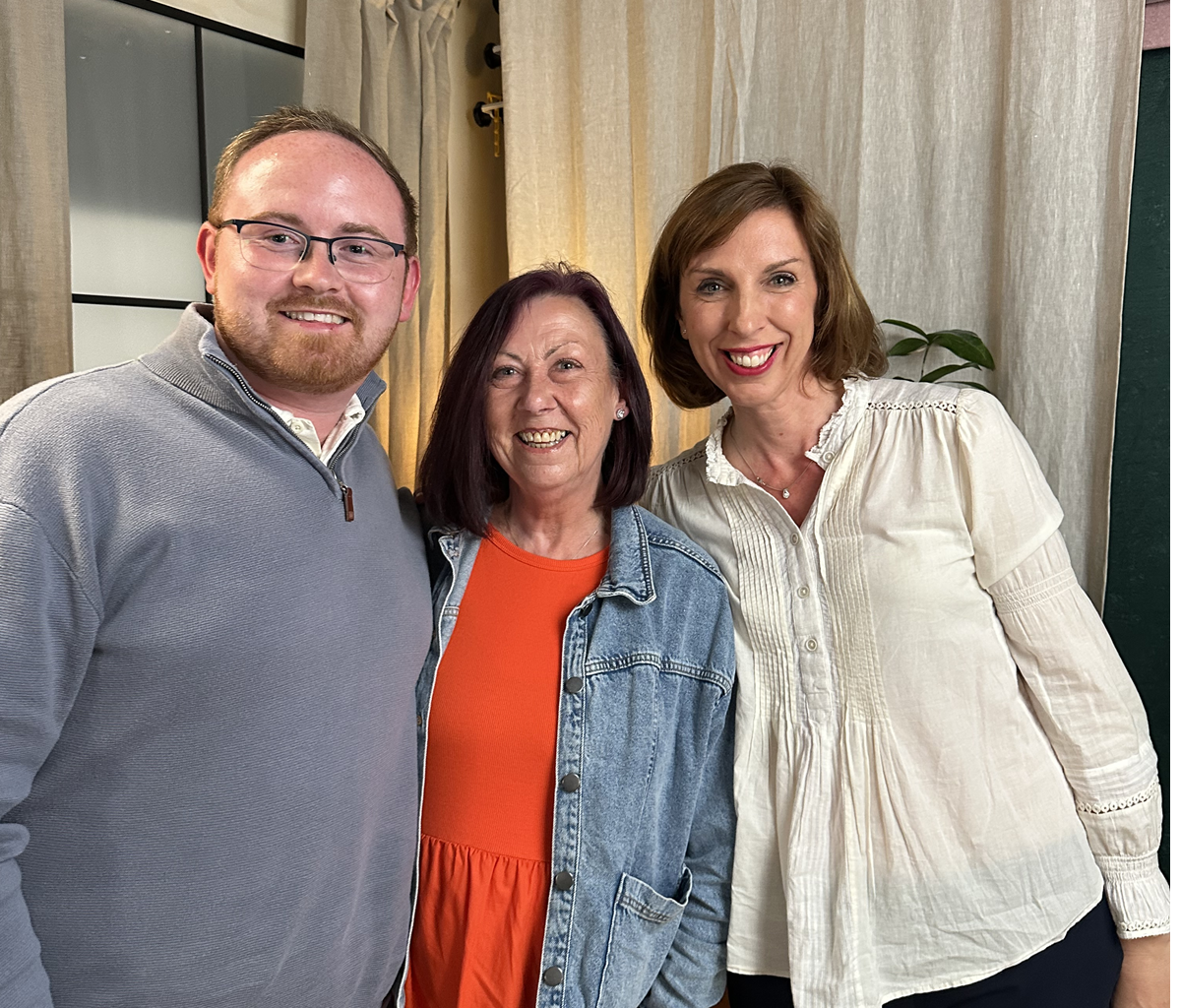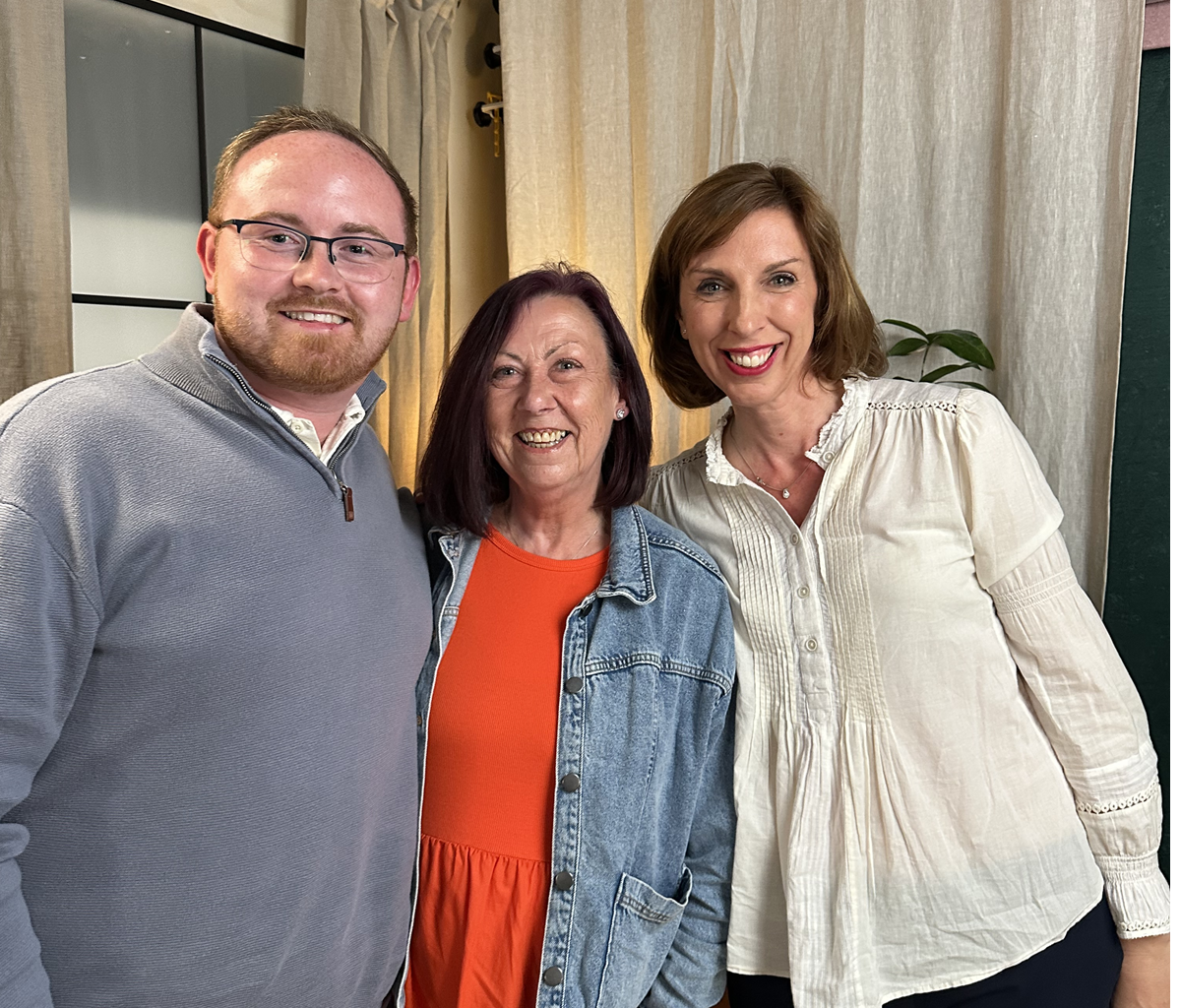
This time last year, Hayley, 57, was sectioned and admitted to a psychiatric unit. She was suffering from intense psychosis, paranoia and depression.
Her behavior had changed so drastically that she no longer recognized her own family. Her speech was incoherent, her thoughts disordered and she was experiencing vivid hallucinations.
Doctors told her family that it’s likely to be frontotemporal dementia (FTD)—a rare and devastating neurological condition that typically affects people between 45 and 64. Unlike Alzheimer’s, FTD often causes dramatic personality changes, emotional withdrawal and problems with speech, movement and decision-making.
But the diagnosis was wrong. Hayley wasn’t losing her mind to dementia. She was going through menopause.
TikTok/@drlouisenewson
Menopause is a natural stage in a woman’s life when her periods stop, marking the end of fertility. But it can also be a time of extreme vulnerability. Hormonal changes can trigger or worsen mental health conditions, including serious ones like psychosis.
In Hayley’s case, the symptoms were so severe and sudden that even specialists believed she had a degenerative brain disease.
Newsweek spoke with Hayley and her 25-year-old son, Jay, about the misdiagnosis that upended their lives.
“We were all completely devastated,” Jay said. “At the time, it was totally believable. Mom’s ability to communicate was deteriorating, her psychosis meant she couldn’t recognize us, and her hallucinations were getting worse.
“Upon hearing the news of a potential dementia diagnosis, it felt like the final stage in a long-standing journey of suffering.”
Misdiagnosis and Hospitalization
Jay was heartbroken by his mom’s diagnosis, but then a family friend suggested it could have to do with her hormones. Desperate for answers, he began researching alternative explanations. That’s when he discovered Dr. Louise Newson, a leading U.K. menopause specialist known for transforming how menopause is understood and treated.

Provided by Dr. Newson
Speaking with Newsweek, Newson explained how menopause symptoms—including memory loss, brain fog, poor concentration and low mood—can closely resemble the early signs of dementia.
“This can lead to confusion or misdiagnosis, with women being told they have cognitive decline when in fact their symptoms are due to hormonal changes,” she said.
“It has been known for many decades that the hormones oestradiol, progesterone and testosterone all have important and beneficial effects on the function of the brain—improving the way the cells and nerves work as well as working as neurotransmitters.
“These hormones reduce inflammation in the brain and also improve blood supply to the brain.”
Battle for Treatment
In a detailed TikTok video shared to @drlouisenewson, Jay highlights how medics refused to believe Hayley’s condition was linked to her hormones.
“Jay struggled to convince the psychiatrists to prescribe body-identical hormones, and it wasn’t until they discussed with Dr. Newson that they eventually agreed to prescribe them some months later,” Hayley told Newsweek.

The Dr Louise Newson Podcast
She began taking HRT and testosterone in September 2024 and it took from four to eight weeks for depression and psychosis to subside.
“I recall one day feeling like something had lifted, and then I spent moments in the subsequent weeks crying as I realized what had been happening.
“Coming back into reality after years of suffering was extremely overwhelming and daunting at first. By the 12th week of HRT, I had returned to reality and was fortunate enough to spend Christmas with my son,” she said.
History of Mental Health Struggles
After suffering with postpartum psychosis with all three of her children, Hayley has spent most of her adult life in and out of mental health units.
In 2010, she was diagnosed with schizoaffective disorder—a mental health condition that is marked by a mix of schizophrenia symptoms such as hallucinations and delusions, and mood disorder symptoms.
“From 48, my mental health and cognitive condition deteriorated significantly,” she said, “and I was unable to recover, spending a lot of the time sectioned on psychiatric wards.”
Hormones and Mental Health
Newson said: “Hormonal changes are a major factor in many women’s mental health, particularly during the perimenopause and after childbirth, as well as women with premenstrual dysphoric disorder (PMDD), yet they’re often overlooked in psychiatric care.
“As a result of this inadequate education, women are frequently given antidepressants, antipsychotics and other unnecessary treatments without exploring whether hormonal changes might be part of the cause. Women need to have a more informed approach that considers both mental health and hormones together.”
Hayley became agoraphobic as her delusions made it hard to leave her home and she self-medicated with alcohol.

TikTok/@drlouisenewson
Life After Recovery
“Since my recovery with HRT, I love having my grandchildren stay with me at the weekends and we have the loveliest of times,” Hayley said. “I also spend time with my children enjoying concerts, meals out and doing the things we missed out on as they grew up.
“I have a newfound lust for life and motivation which I haven’t experienced in decades. Few things worry me and my confidence has generally returned. Despite having suffered for most of my adulthood and the elements of lasting damage, I feel so fortunate to be able to finally create many special memories in such a short space of time.”
Now Hayley is making up for lost time with her family, something her son admires greatly.
“Never in a million years did I think we would have ever achieved what we have done in the past year,” he said. “I feel a great sense of achievement and satisfaction that the hard work and perseverance in advocating for my mum and finding the answers has paid off more than we ever could have imagined.”
